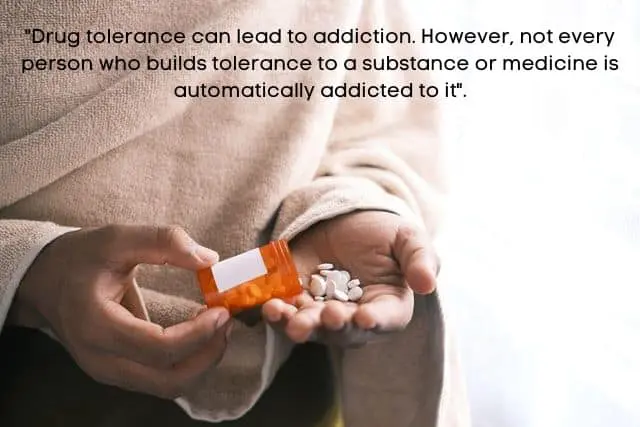Dangers of Using drugs is a significant issue that impacts countless lives, both directly and indirectly, with its dangers being extensive and profound.

The repercussions of drug misuse can lead to severe addiction and health problems, severely impacting physical fitness, mental health, relationships, and overall life quality. Despite these known risks, substance abuse continues to be widespread globally.
In this blog post, we will examine the hazards associated with drug use, its effects on the body and mind, as well as how to get help if you or someone you know is battling substance abuse.
What Are Drugs and How Do They Work
Drugs are compounds that influence the functioning of the brain and body.
These substances can be legal, including prescription medications or alcohol, or illegal, such as cocaine and heroin.
Some individuals use drugs recreationally to achieve sensations of euphoria, relaxation, or increased energy levels; others may resort to drug use in an attempt to manage emotional pain, stress factors, or mental health challenges.
No matter why they are used, drugs function by changing the brain’s chemistry and disrupting neurotransmitters—chemical messengers in the brain responsible for regulating mood, behavior, and thought processes.
Although their effects may initially feel enjoyable, drug use can result in significant and long-lasting consequences.
Risk of Addiction
One of the biggest risks associated with Dangers of Using drugs is addiction. This condition is a long-term, relapsing disorder marked by an uncontrollable urge to seek out drugs despite adverse outcomes.
Substances such as opioids, methamphetamine, cocaine, and alcohol are extremely addictive because they inundate the brain with dopamine—a neurotransmitter associated with pleasure. Gradually,
the brain begins to depend on these substances for normal functioning, making it incredibly challenging for individuals to quit using them.
Addiction can affect every area of a person’s life, including their relationships, career, and finances. The intense cravings and withdrawal symptoms associated with addiction make it extremely challenging to quit without professional assistance.
Decline in Physical Well-being
The impact of drug use on the body can be profound, frequently resulting in serious and sometimes permanent health issues. While specific effects vary based on the type of drug used, some common physical risks include:
Cardiovascular Complications: Substances such as cocaine and methamphetamine can elevate heart rate and blood pressure, potentially resulting in heart attacks, strokes, or other cardiovascular problems.
Harm to the lungs can result from smoking substances like marijuana or crack cocaine, potentially leading to persistent respiratory issues such as lung infections and cancer.
Liver Disease: Alcohol and certain substances, such as heroin and prescription painkillers, can lead to liver damage, including conditions like liver failure and cirrhosis.
Infections: Using shared needles for drug injection can heighten the risk of contracting infections such as HIV and hepatitis.
Over time, drug use can greatly impair the immune system, increasing vulnerability to infections and various illnesses. Extended periods of drug use frequently result in malnutrition, weight loss, and an overall decline in physical health.
Mental Health Challenges
The effects of drugs on mental health are significant and extensive. Drug use can worsen pre-existing mental health issues or lead to the emergence of new ones. Typical mental health problems associated with drug use include:
Depression: Numerous drugs initially induce feelings of euphoria, but as their effects diminish, they frequently result in a “crash,” leading to emotions of sadness, hopelessness, and despair.
Anxiety: Substances such as cocaine, ecstasy, and amphetamines can lead to intense anxiety, panic attacks, and paranoia. In certain instances, these symptoms continue even after the drug has been cleared from the body.
Psychosis: Extended use of substances such as methamphetamine, cannabis, and hallucinogens may result in episodes characterized by hallucinations, delusions, and a disconnection from reality.
Memory and Cognitive Decline: Prolonged use of drugs can negatively impact cognitive abilities such as memory, decision-making, and learning. This may lead to difficulties in daily life functioning and potentially cause irreversible brain damage.
Mental health and substance use disorders frequently occur together. Often, individuals facing mental health challenges may resort to drugs as a means of self-medication, only to discover that these substances exacerbate their condition over time.
Social and Legal Consequences
The risks associated with Dangers of Using drugs reaches far beyond individual health, leading to significant social and legal consequences. Addiction frequently results in damaged or severed relationships with family, friends, and colleagues.
This can initiate a cycle of isolation, shame, and guilt that makes it more difficult for people to seek assistance.
Furthermore, Dangers of Using drugs may result in legal issues. In most countries, possessing, distributing, or manufacturing illegal drugs is a criminal act that can lead to fines, imprisonment, or acquiring a criminal record if caught.
These consequences can have enduring impacts on an individual’s ability to secure employment, obtain housing, or retain custody of their children.
Overdose and Death
One of the gravest consequences of Dangers of Using drugs is the potential for overdose, which can result in death.
Overdoses happen when an individual consumes an excessive amount of a substance, surpassing the body’s ability to handle its impact.
Opioid overdoses are notably one of the primary causes of drug-related fatalities because they suppress the central nervous system and may lead to respiratory failure.
Even if an overdose is not fatal, it can lead to permanent damage to the brain, heart, lungs, and other organs. Some individuals may need lifelong medical care after surviving such an incident.
Pursuing Assistance and Therapy
If you or someone you know is facing challenges with drug use, it’s crucial to seek help promptly. Addiction can be treated, and recovery is achievable with the appropriate support and resources. Available treatment options include:
Detoxification: Under medical supervision, detox assists individuals in safely withdrawing from drugs while managing the physical symptoms associated with withdrawal.
Rehabilitation programs provide organized settings where individuals can access counseling, therapy, and support to tackle the root causes of addiction.
Support Groups: Organizations such as Narcotics Anonymous (NA) offer peer support for those in recovery, creating a safe environment to share experiences and gain encouragement.
Conclusion
The risks associated with Dangers of Using drug are significant, impacting every facet of life from physical and mental well-being to personal relationships and legal matters.
Consequences such as addiction, declining health, psychological issues, social isolation, and the threat of overdose can be devastating.
However, there is hope; support is available for those seeking recovery. If you or someone close to you struggles with substance abuse, consider contacting a healthcare provider or joining a support group to start the path towards healing and improved quality of life.










